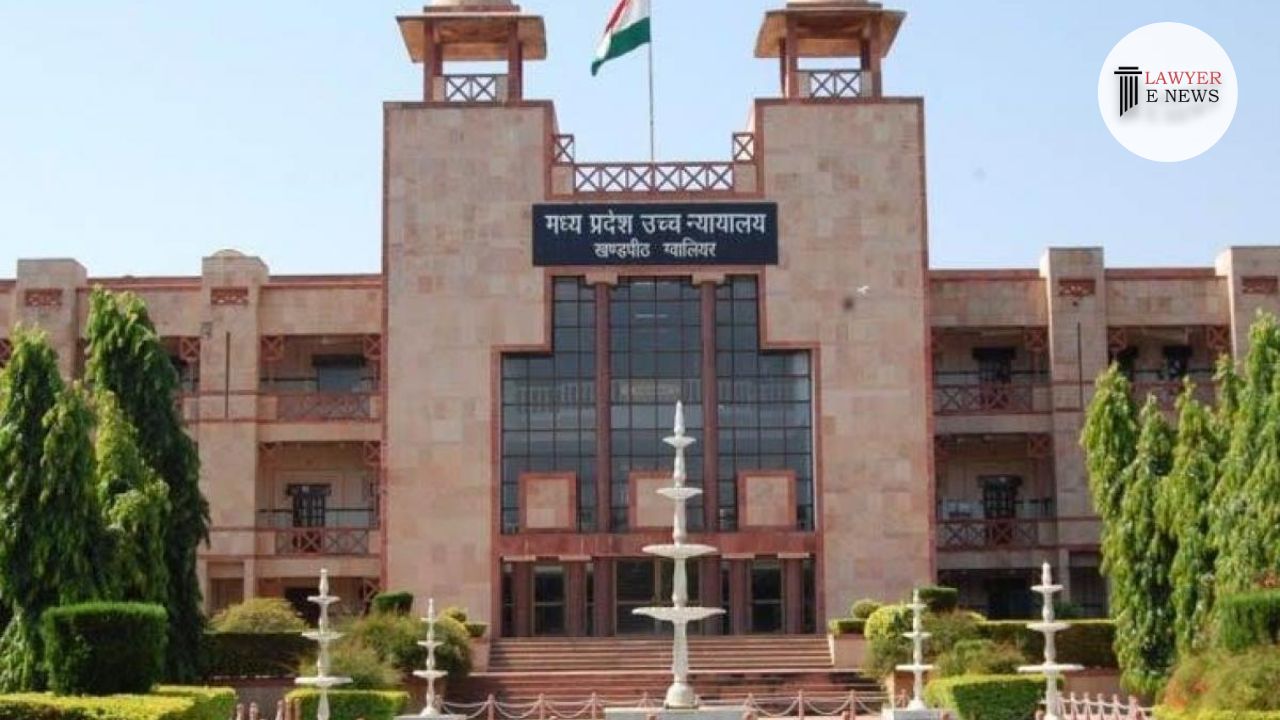-
by Admin
15 February 2026 5:35 AM



Madhya Pradesh High Court delivered a significant judgment in the case of Chakradhar and Others vs. Collector/District Magistrate/Appellate Authority and Others (Writ Petition No. 27277 of 2024). The Court upheld the eviction of the petitioners, affirming the Sub Divisional Officer (Revenue)-cum-Maintenance Tribunal's order under the Maintenance and Welfare of Parents and Senior Citizens Act, 2007. The petitioners’ claim of shared ownership over the disputed property was dismissed, with the Court imposing costs for misuse of the legal process.
Petitioners' Ownership Claim Time-Barred and Unsupported by Evidence, Court Finds
The key issue revolved around the petitioners' claim that the property in question, initially allotted to their grandfather in 1974, was ancestral and thus a shared household. However, the Court rejected this contention, noting that the petitioners had never challenged the mutation of the property into their father’s name in 1992-93. As Justice Vivek Agarwal observed: "The plea of shared household or share in the property being a bogie raised by the petitioners is not substantiated from the documentary evidence available on record." [Para 21A].
The dispute began with an eviction order issued by the Sub Divisional Officer (Revenue)-cum-Maintenance Tribunal in favor of respondent No. 3, a senior citizen, under the Maintenance and Welfare of Parents and Senior Citizens Act, 2007. The petitioners, who are the son and grandsons of respondent No. 3, contested this order, arguing that they had a shared interest in the property and that the eviction was arbitrary. The petitioners further contended that a portion of the land on which they operated a shop was government property, hence beyond the jurisdiction of the eviction order.
Ownership and Ancestral Property Claim: The petitioners argued that the property was ancestral and they had a legitimate share. However, the Court found that since the property had been recorded in the name of their father, Jagdish Prasad, in 1992-93, and no challenge was made to this mutation, the claim of shared ownership was legally time-barred. The Court noted that "petitioners did not file any suit for declaration or undertook any revenue proceedings" [Para 20], thereby losing any standing to claim ownership.
Eviction Under Senior Citizens Act: The petitioners sought to challenge the eviction order under Section 23 of the Maintenance and Welfare of Parents and Senior Citizens Act, 2007, asserting that there had been no transfer of property to them. However, the Court clarified that the eviction was not based on a transfer of property but on the nuisance caused to respondent No. 3. The Court emphasized that Rule 20 of the M.P. Maintenance and Welfare of Parents and Senior Citizens Rules, 2009, authorizes the Sub Divisional Officer to protect the life and property of senior citizens.
Misapplication of Case Law: The petitioners attempted to rely on Supreme Court rulings in Sudesh Chhikara vs. Ramti Devi and Smt. S. Vanitha vs. The Deputy Commissioner, Bengaluru Urban District. The Court found these judgments irrelevant, as they dealt with property transfers and domestic violence—issues absent in the present case. Justice Agarwal criticized the petitioners’ counsel for citing inapplicable judgments, stating: "I deprecate this practice on the part of the counsel to supply judgments without having any application." [Para 31].
The Court dismissed the petition, ruling that the petitioners' claims were meritless and only served to prolong litigation, which had been ongoing since 2020. The Court also imposed costs of Rs. 10,000 on the petitioners for misusing the legal process, directing the authorities to immediately implement the eviction order without further delay.
This ruling reinforces the legal protections offered under the Maintenance and Welfare of Parents and Senior Citizens Act, 2007, ensuring that senior citizens can seek timely relief from harassment or nuisance caused by their own family members. The judgment also clarifies the limits of ancestral property claims when procedural requirements, such as challenging mutations, are ignored.
Date of Decision: September 15, 2024
Chakradhar and Others vs. Collector/District Magistrate/Appellate Authority and Others
